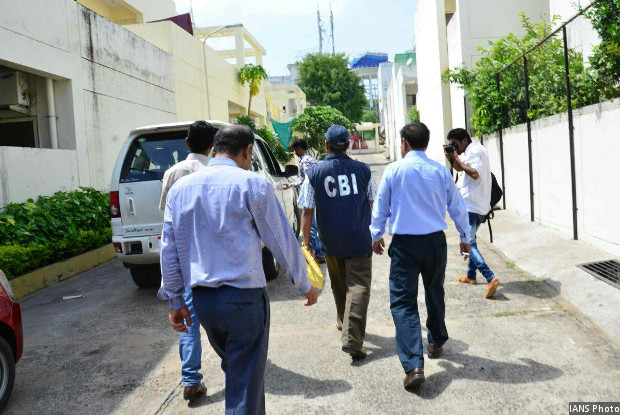1-in-3 Corruption Cases Result In Acquittal Of Central Govt Officials
One in every three corruption-related cases against officials of the central government since 2006, investigated by the Central Bureau of Investigation (CBI) with trial complete, resulted in the acquittal of officials, according to this report by data journalism site Factly, based on data released to the Lok Sabha (lower house of parliament) in August 2016.
The cases were filed under The Prevention of Corruption Act,1988 (PC Act), which deals with corruption by government servants. The amendments to the Act are yet to be ratified by parliament.
More than 7,000 corruption-related cases disposed since 2006
Between 2006 and June 2016, the CBI completed investigation in 7,217 cases under the PC Act. Of these, 3,615 (50.1%) ended in prosecution; 2,178 (30.2%) ended in prosecution as well as regular departmental action (RDA), while 636 cases (8.8%) ended in only RDA. As many as 671 cases (9.3%) were closed without any action.
Source: Lok Sabha; Data as of June 2016
The highest number of cases were investigated in 2008 (933), followed by 2007 (916). The least number of cases were investigated in 2010 (467).
Source: Lok Sabha; Data as of June 2016
More than 32% cases ended in acquittal
Since 2006, trial was complete in 6,533 cases under the PC Act where the investigation was done by the CBI. As many as 4,054 cases (62.1%) ended in conviction of the accused, while 2,095 cases (32.1%) ended in acquittal.
Source: Lok Sabha; Data as of June 2016
The highest number of cases were disposed in 2013 (921 cases), followed by 865 in 2012. The least number of cases were disposed in 2008 (369)--the same year that saw the most cases being investigated.
Prosecution sanction still an issue
As per the PC Act, the relevant government has to sanction the prosecution of the official when an investigating agency such as the CBI recommends prosecution. Though the government is supposed to take a decision on sanction of prosecution within a period of three months, many such cases remain pending for sanction from the government even after four months.
(Dubbudu has been working on issues related to the Right to Information for a decade. He is a data/information enthusiast & is passionate about governance/policy issues. Factly.in is dedicated to making public data meaningful.)
We welcome feedback. Please write to respond@indiaspend.org. We reserve the right to edit responses for language and grammar.
__________________________________________________________________
“Liked this story? Indiaspend.org is a non-profit, and we depend on readers like you to drive our public-interest journalism efforts. Donate Rs 500; Rs 1,000, Rs 2,000.”



